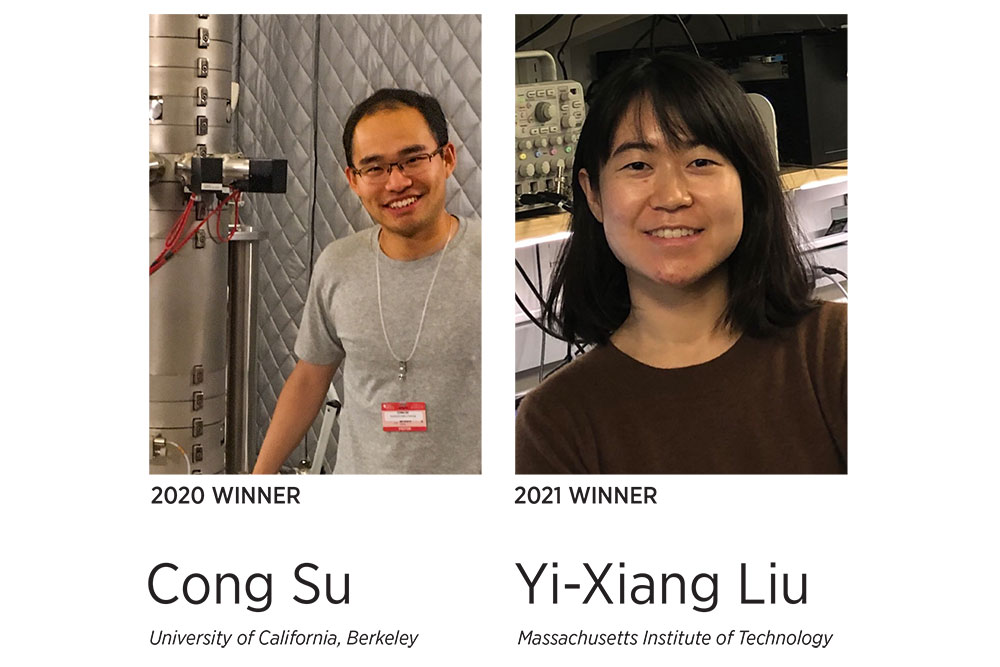2020–2021 Del Favero Prize
Wednesday, December 15, 2021. 1:00 – 3:00 PM
Virtual event. Zoom
The Del Favero Thesis Prize, established in 2014 with a generous gift from alum James Del Favero (SM ’84), is awarded annually to a PhD graduate in NSE whose thesis is judged to have made the most innovative advance in our field.

2020 WINNER
Cong Su, PhD ’19
University of California, Berkeley
Atomic Engineering — Controlling Atoms with Electron Irradiation for Quantum Devices
ABSTRACT: Atomic Engineering (AE) — creating and synthesizing structures atom-by-atom pushes the material design and creation process to the era of angstrom-scale after the nanoscale. The birth of AE is symbolized by the construction of the “IBM” logo using Xe atoms via scanning tunneling microscope (STM). However, since then, the STM-enabled technologies did not extend AE further to the device-level as a result of two critical issues: (1) To stabilize STM-engineered atomic structures, ultra-low temperature and ultra-high vacuum are required; (2) Atom control using STM is an extremely time-consuming process for the mass atom control due to the slow probe motion. Therefore, to release the full potential of AE, room-temperature atom-level modification method is required.
BIO: Cong Su obtained his Ph.D. degree from the Department of Nuclear Science and Engineering of MIT in 2019 (advised by Prof. Ju Li and Prof. Jing Kong) and he is currently the Heising-Simons Junior Postdoc Fellow of the Kavli Energy NanoScience Institute (ENSI) and the Department of Physics at the University of California, Berkeley. He received his bachelor degree in physics from Yuanpei College, Peking University. His research mainly focuses on harnessing high-energy electron irradiation to make configurational change of materials, and fabricate functional optoelectronic devices with atomic precision, which is what he calls “Atomic Engineering”. Google Scholar
2021 WINNER
Yixiang Liu, PhD ’20
MIT
Quantum sensing at its finest — Measuring minuscule magnetic fields with nanoscale resolution
ABSTRACT: Magnetometers at the nanoscale give us an extra eye to peer into the minuscule world and have applications in areas such as bioimaging, materials science, and quantum device characterization. In these applications, one is typically interested in extracting the strength, direction, and frequency of the magnetic fields. Quantum sensors based on color centers in diamond is a natural candidate for this task due to its sensitivity to magnetic fields and small sizes.
In this talk, I will first introduce the principle of magnetometry using quantum sensors. Then I will discuss my work on making a single quantum sensor sensitive to vector magnetic fields at different frequency ranges with the help of ancillary fields, opening up new possibilities for characterizing magnetic fields at the nanoscale.
RELATED
- 2019 Del Favero Prize Lecture
- 2018 Del Favero Prize Lecture
- 2016 + 2017 Del Favero Prize Lectures
- 2015/6 Del Favero Lecture: Radiation physics today for materials science tomorrow
- 2014 Del Favero Lecture: The future of fusion power
November 2021
